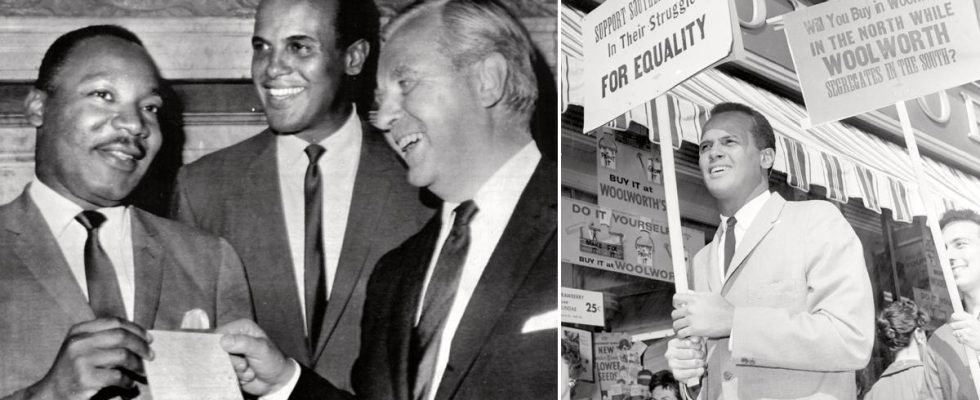Published: Less than 20 min ago
As a black, it shouldn’t have been possible.
But Harry Belafonte did.
He became a star on the stage – when racism still ruled.
He gave us “The Banana Boat,” “Jamaica Farewell” and “Island in the sun.”
Now he is dead, 96 years old.
“Day-O!”
The exclamation became a world plague – everywhere people emitted the characteristic sound of “The Bana boat”, which became Harry Belafonte’s biggest hit and signature song.
It is a Jamaican folk song, which appeared in 1956.
– It’s a song about my father, my mother, my maternal uncles, the men and women who toiled in the banana fields, in the sugarcane fields in Jamaica. It’s a classic workers’ song, he said himself in an interview with The New York Times in 1993.
Harry Belafonte became historic, not only because he made a career as a black artist at the time it was hardly possible, his album “Calypso” including “Banana Boat”, became the first album by a single artist to sell over a million copy.
Suffered from dyslexia
Harry Belafonte himself was born in Harlem in New York in 1927, the same city where he would die 96 years later.
But his mother Melvine was born in Jamaica and his father, who was a cook in the English Navy, was born in Martinique in the West Indies.
At the age of eight, Harry was sent to live with his grandmother in Jamaica, in the small village of Aboukir.
After four he was back in Harlem, a lanky misfit with a West Indian accent and dyslexia. He dropped out of high school.
During World War II he served in the Navy.
His passion for the theater was sparked in the 1940s, when he was working as a janitor’s assistant and a tenant gave him two tickets to the American Negro Theater.
He befriended Sidney Poitier, who would also achieve success as an actor and become the first African-American to win an Oscar for Best Actor in 1964.
Got mimed in the movie
The two friends attended The New School at the same time as Marlon Brando, Tony Curtis and Walther Matthau.
For his performance in the Broadway revue “Almanac”, Harry Balefonte received a Tony, the theatre’s equivalent of the film’s Oscar.
Harry Belafonte starred in many films. In the hit musical Carmen Jones in 1954, however, he was not allowed to sing himself, but only to mime – his own “black” singing voice was considered absurdly unsuitable for the role in the film.
In the film Island in the sun, it was implied that his colored character would have a relationship with Jane Fontaine’s white character – which was totally unthinkable in the US in 1957.
Eventually, Harry Belafonte grew tired of the lack of suitable roles for him – and turned to music instead.
Friend of Martin Luther King
He also became a strong and courageous voice for civil rights and social justice, something that was close to his heart throughout his life.
During the American civil rights movement of the 1950s and 1960s, Harry Belafonte was one of the most prominent figures. He was also a close friend and advisor to Martin Luther King.
In 1966, he was on stage at the Opera in Stockholm, in the Scandinavian fund-raising show En gränslös vällen at the Opera, together with Alice Babs, Hasse och Tage and Monica Zetterlund.
He was also an ambassador for Unicef and committed to the fight for women’s rights and against apartheid in South Africa.
Harry Belafonte had four children, three daughters and one son, during his two marriages.
